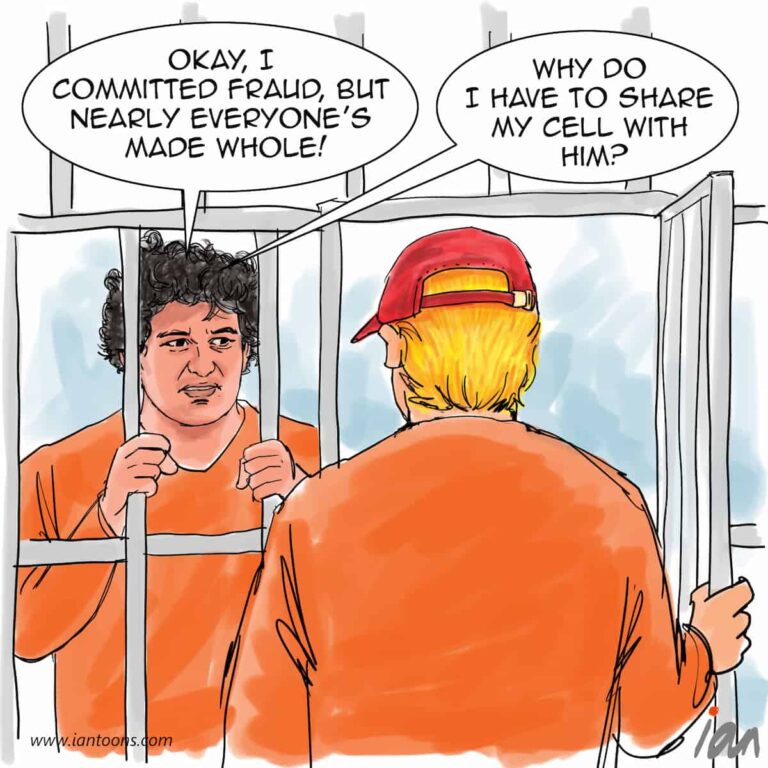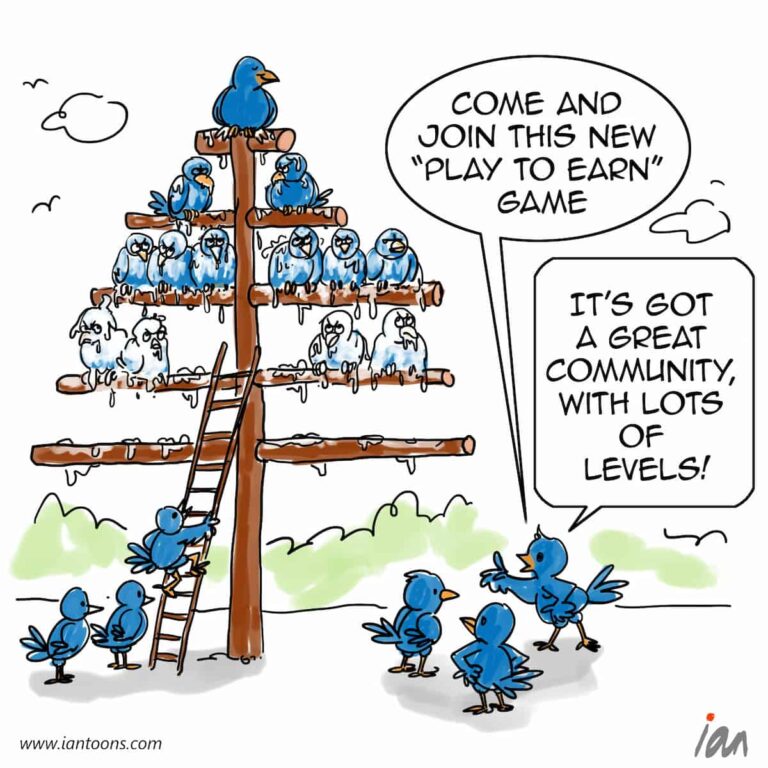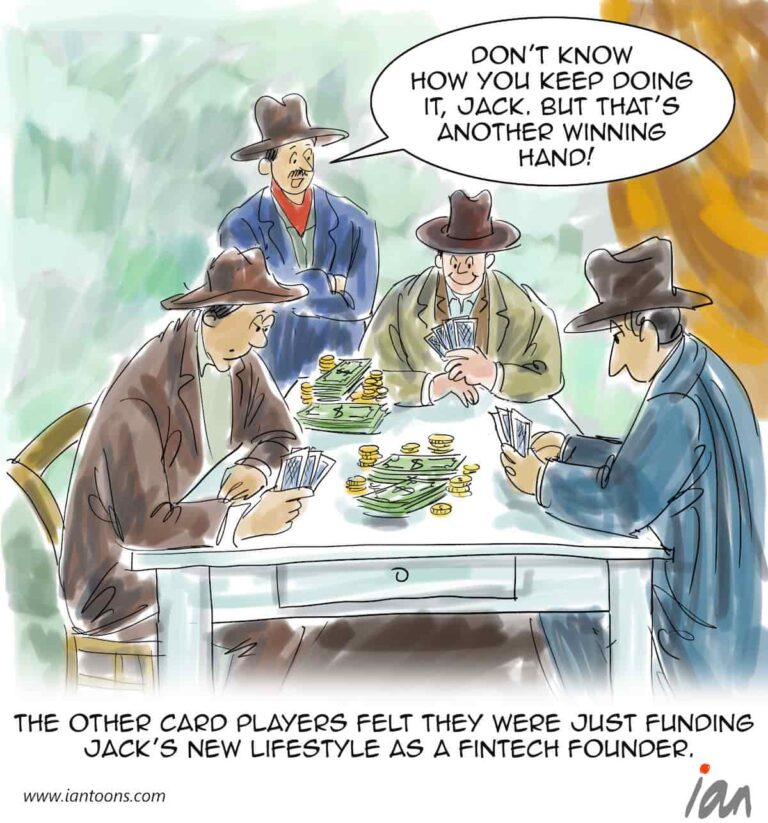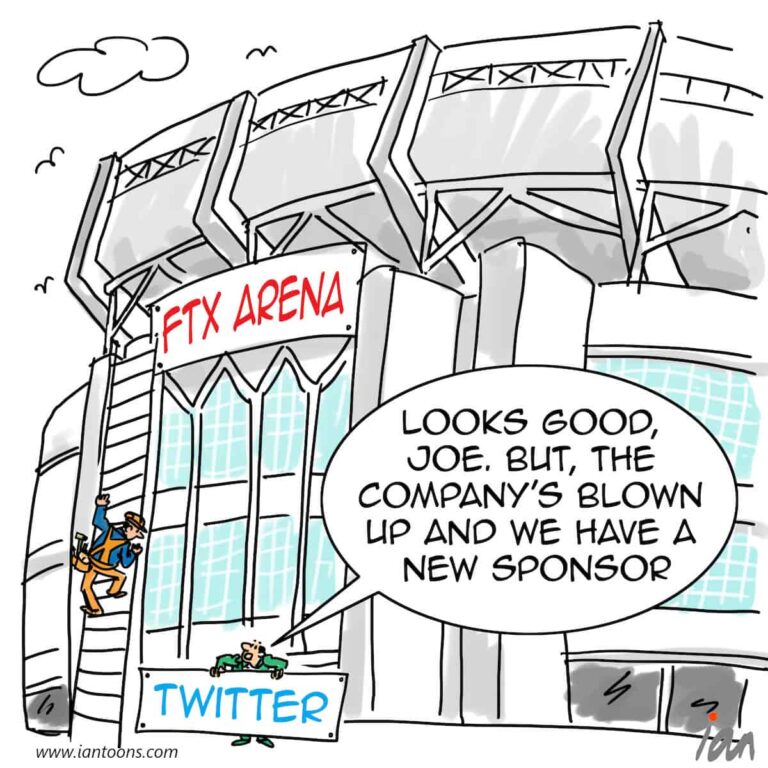Embarrassing Uncle
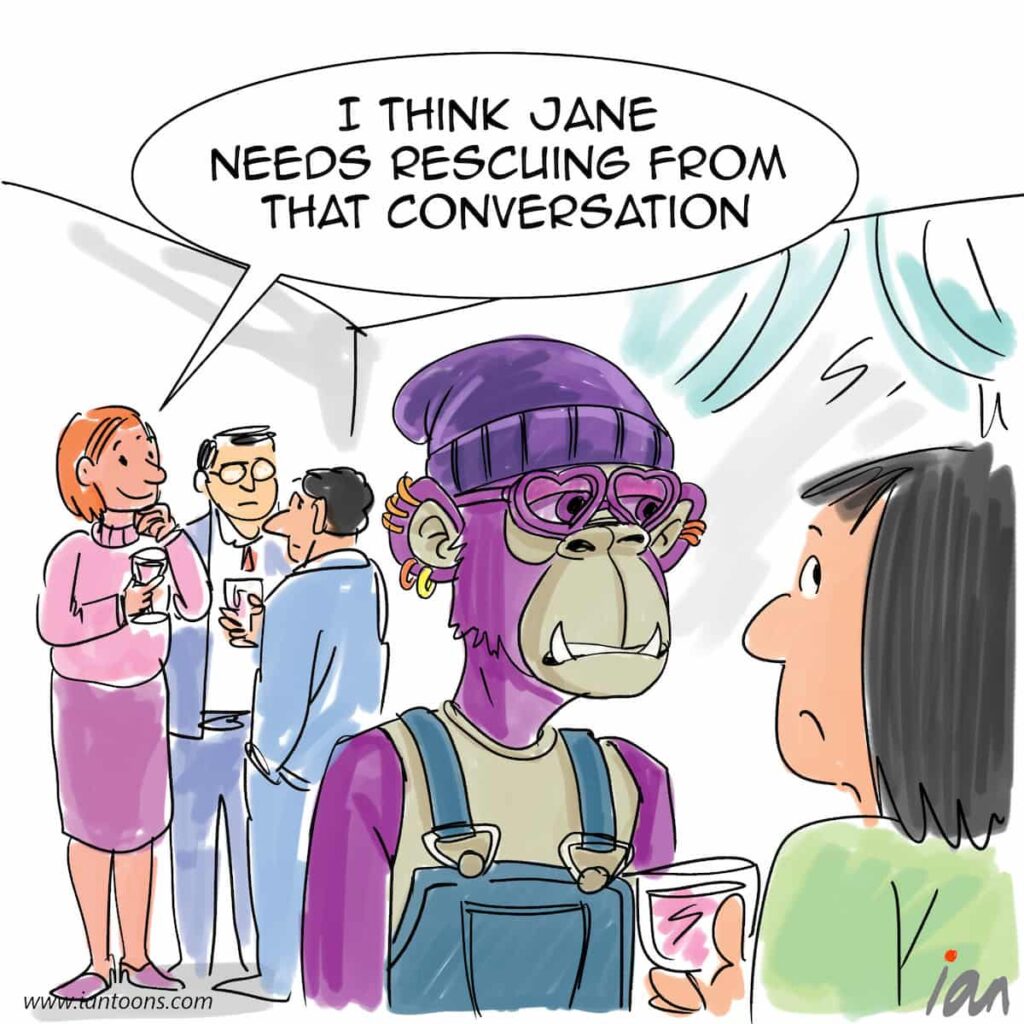
“Embarrassing Uncle” – a cartoon that illustrates that while NFTs have become something of an embarrassment, the underlying smart contact technology is becoming a key part of the digital infrastructure stack.
Smart contracts are transactions that are executed automatically by a computer program or a transaction protocol.
Initially, one of the most successful smart contract applications were art and collectable NFTs (Non-Fungible Tokens), which saw an explosion in the last bull market where sales went from $4.6 billion in 2019 to $11.1 billion by 2021.
Famously, Justin Bieber bought a Bored Ape NFT for a whopping $1.3M. Yet, we all know that this crashed and a 2023 report from crypto analysis firm dappGambl found that 95% of NFTs are worth practically nothing.
Last week, the CEO of Yuga Labs, the developer behind the Bored Apes that raised $450M, remarked that it had “lost its way” and revealed the newest round of layoffs.
However, smart contracts are starting to see broader adoption. Because smart contracts execute agreements, they can be used for many different purposes.
One of the simplest uses is ensuring transactions between two parties occur, such as the purchase and delivery of goods (e.g. real estate transaction) without requiring a human trust layer (e.g. real estate agents or title insurers).
Wintergreen Research believes combining smart contracts with AI, will provide governance rules to push the boundaries of AI into areas like healthcare and that “processes implemented with AI through smart contracts reduce the settlement time from two days to several seconds.”
21
10
1







